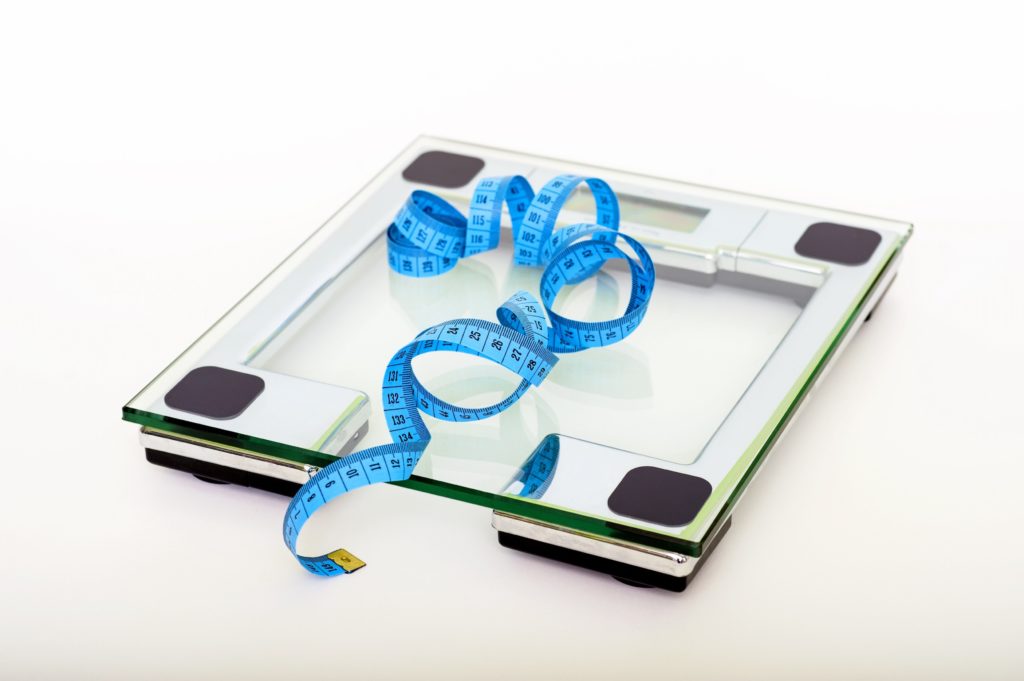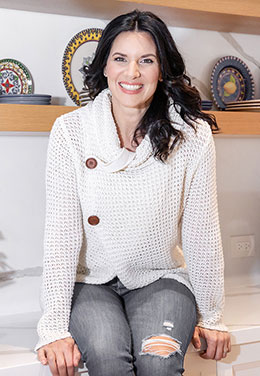 You totally want to ditch your scale, don’t you?
You totally want to ditch your scale, don’t you?
You may have this weird kind of relationship with your “weight”.
I mean, it doesn’t define you (obviously).
What you weigh can matter but only to a certain extent.
Let’s look at your waist circumference (well…you look at yours and I’ll look at mine).
Waist Circumference (AKA “Belly Fat”):
Do you remember the fruity body shape descriptions being like an “apple” or a “pear”? The apple is kinda round around the middle (you know – belly fat-ish, kinda beer belly-ish) and the pear is rounder around the hips/thighs.
THAT is what we’re talking about here.
Do you know which shape is associated with a higher risk of sleep apnea, blood sugar issues (e.g. insulin resistance and diabetes) and heart issues (high blood pressure, blood fat, and arterial diseases).
Yup – that apple!
And it’s not because of the subcutaneous (under the skin) fat that you may refer to as a “muffin top”. The health risk is actually due to the fat inside the abdomen covering the liver, intestines and other organs there.
This internal fat is called “visceral fat” and that’s where a lot of the problem actually is. It’s this “un-pinchable” fat.
The reason the visceral fat can be a health issue is because it releases fatty acids, inflammatory compounds, and hormones that can negatively affect your blood fats, blood sugars, and blood pressure.
And the apple-shaped people tend to have a lot more of this hidden visceral fat than the pear-shaped people do.
So as you can see where your fat is stored is more important that how much you weigh.
 Am I an apple or a pear?
Am I an apple or a pear?
It’s pretty simple to find out if you’re in the higher risk category or not. The easiest way is to just measure your waist circumference with a measuring tape. You can do it right now.
Women, if your waist is 35” or more you could be considered to have “abdominal obesity” and be in the higher risk category. Pregnant ladies are exempt, of course.
For men the number is 40”.
Of course this isn’t a diagnostic tool. There are lots of risk factors for chronic diseases. Waist circumference is just one of them.
If you have concerns definitely see your doctor.
Tips for helping reduce some belly fat:
- Eat more fiber. Fiber can help reduce belly fat in a few ways. First of all it helps you feel full and also helps to reduce the amount of calories you absorb from your food. Some examples of high-fiber foods are brussel sprouts, flax and chia seeds, avocado, and blackberries.
- Add more protein to your day. Protein reduces your appetite and makes you feel fuller longer. It also has a high TEF (thermic effect of food) compared with fats and carbs and ensures you have enough of the amino acid building blocks for your muscles.
- Nix added sugars. This means ditch the processed sweetened foods especially those sweet drinks (even 100% pure juice).
- Move more. Get some aerobic exercise. Lift some weights. Walk and take the stairs. It all adds up.
- Stress less. Seriously! Elevated levels in the stress hormone cortisol have been shown to increase appetite and drive abdominal fat.
- Get more sleep. Try making this a priority and seeing how much better you feel (and look).
Recipe (High fibre side dish): Garlic Lemon Roasted Brussels Sprouts
 Serves 4
Serves 4
1 lb Brussels sprouts (washed, ends removed, halved)
2-3 cloves of garlic (minced)
2 tablespoons extra virgin olive oil
2 teaspoons fresh lemon juice
dash salt and pepper
Instructions
Preheat oven to 400F.
In a bowl toss sprouts with garlic, oil, and lemon juice. Spread on a baking tray and season with salt and pepper.
Bake for about 15 minutes. Toss. Bake for another 10 minutes. Serve and Enjoy!
Tip: Brussel sprouts contain the fat-soluble bone-loving vitamin K. You may want to eat them more often.
- 1 lb Brussels sprouts (washed, ends removed, halved)
- 2-3 cloves of garlic (minced)
- 2 tablespoons extra virgin olive oil
- 2 teaspoons fresh lemon juice
- dash salt and pepper and Parmiggiano
- Preheat oven to 400F.
- In a bowl toss sprouts with garlic, oil, and lemon juice. Spread on a baking tray and season with salt and pepper.
- Bake for about 15 minutes. Toss.
- Bake for another 10 minutes.
- Serve and Enjoy!
References:
http://www.precisionnutrition.com/research-abdominal-fat-and-risk
http://www.precisionnutrition.com/visceral-fat-location
http://www.drsharma.ca/inspiring-my-interest-in-visceral-fat
https://www.hsph.harvard.edu/obesity-prevention-source/obesity-definition/abdominal-obesity/
http://www.hc-sc.gc.ca/fn-an/nutrition/weights-poids/guide-ld-adult/qa-qr-pub-eng.php#a4
https://authoritynutrition.com/6-proven-ways-to-lose-belly-fat/


